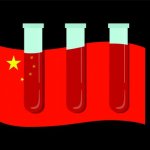2020’s M&A activity hasn’t quite reached the heights of last year’s, where two pharma mega-mergers – BMS’ buyout of Celegne and AbbVie’s acquisition of Allergan – accounted for almost 40% of total M&A deal values.
That said, there were still some interesting moves indicating new directions of travel for big pharma players – with most deals focused on specific drugs from biotechs, particularly in cancer (though we did get rumours of an AstraZeneca-Gilead merger, which would have been the biggest pharma M&A deal of all time).
Here we take a look at the biggest mergers and acquisitions of 2020 and what they might mean for the companies involved.
AstraZeneca & Alexion
By far the biggest pharma deal of the year is AstraZeneca’s late-breaking offer to buy Alexion for $39 billion.
Want to publish your own articles on DistilINFO Publications?
Send us an email, we will get in touch with you.
Alexion has routinely featured among lists of top biopharma takeover prospects in the last couple of years, and with the purchase, AZ will bolster its immunology franchise with $4 billion blockbuster Soliris (eculizumab) and longer acting follow-up Ultomiris (ravulizumab), plus a pipeline of 11 drugs for rare and autoimmune diseases.
It marks something of a departure from AZ’s relentless focus on deal-making in oncology, its top product category, and also comes as Alexion has been locked in a battle with activist shareholders pushing for a sale.
Boston, US-based Alexion spent a lot of 2019 arguing the merits of remaining independent, saying that while Soliris is approaching the end of its patent life – with heavyweight competitors like Amgen already eyeing the biosimilar market for the drug – Ultomiris and its pipeline could help drives sales to $9 to $10 billion in 2025.
The threat of biosimilar competition to its cash cow has weakened Alexion’s share price, providing an opportunity for AZ, which has been rumoured to be angling for a large acquisition for several months.
While the first biosimilars to Soliris have already reached the market in some countries like Russia, Alexion cut a settlement deal with Amgen in the summer that prevents the latter’s biosimilar version of Soliris from entering the US market until 2025, avoiding a near-term cash cliff.
In the meantime, Ultomiris has been gathering momentum, fuelled by intravenous dosing every eight weeks, rather than every two weeks with Soliris. It racked up $340 million in sales last year, and added another $763 million in the first nine months of this year, backing up its blockbuster credentials.
Meanwhile, AZ will also pick up three other drugs – Strensiq (asfotase alfa) for hypophosphatasia, Kanuma (sebelipase alfa) for lysosomal acid lipase deficiency (LAL-D) and anticoagulant reversal agent Andexxa (andexanet alfa) – that collectively brought in almost $675 million in the first nine months of 2020.
Gilead & Immunomedics
The AZ-Alexion deal is likely to be the only big pharma merger this year, but Gilead’s purchase of US biotech Immunomedics and its potential cancer blockbuster Trodelvy isn’t far off it in terms of value, with the deal totalling $21 billion.
California-based Gilead announced its strong intentions in oncology in 2017 with its $11.9 billion buy of Kite Pharma and followed that earlier this year by acquiring immuno-oncology firm Forty Seven for $4.9 billion (see below). Shoring up its assets in a wider range of disease areas will help the company weather the storm as the pool of patients eligible to receive its hepatitis C drugs such as Sovaldi shrinks.
Trodelvy (sacituzumab govitecan) is a first-in-class TROP2 antibody-drug conjugate drug that was granted accelerated approval by the FDA in April for adults with metastatic triple-negative breast cancer (TNBC), who have received at least two previous therapies for metastatic disease.
Data from trials of the drug wowed ESMO in September – Trodelvy was shown to significantly extend overall survival (OS) and improved overall response rate (ORR) and clinical benefit rate (CBR), compared with standard chemotherapy in TNBC patients with brain metastases treated with at least two therapies.
The 500-plus patients in ASCENT had received a median of four previous anticancer treatments, but Trodelvy significantly improved OS with a median of 12.1 months, compared with 6.7 months in patients treated with chemotherapy.
Johnson and Johnson & Momenta
This $6.5 billion deal means that J&J has added potential inflammatory disease blockbuster nipocalimab to the pipeline at its Janssen pharmaceuticals unit.
J&J thinks that Momenta’s lead drug nipocalimab could be a kind of Swiss army knife drug that could be used across a range of inflammatory diseases including maternal-foetal disorders, neuro-inflammatory disorders, rheumatology, and autoimmune haematology.
The success of AbbVie’s Humira (adalimumab), which peaked at almost $20 billion in sales in 2018, demonstrates the potential of inflammatory diseases drugs to make mega-bucks.
Johnson & Johnson’s own Remicade (infliximab) was also a blockbuster several times over thanks to approvals in a range of inflammatory diseases including Crohn’s, rheumatoid arthritis and psoriasis.
But like the rest of this first generation of antibody-based drugs, Remicade has been hit by cheaper competition from biosimilars and the hunt is on for newer drugs that outperform standard therapy in terms of safety and efficacy.
Whether nipocalimab achieves the astronomical figures seen from Humira and Remicade remains to be seen – but the price J&J has paid shows the big pharma thinks it has considerable potential.
Momenta is best known for producing a generic version of Teva’s multiple sclerosis drug Copaxone (glatiramer), but nipocalimab is the company’s lead pipeline asset and the main rationale behind the acquisition.
Source: Pharma Phorum








